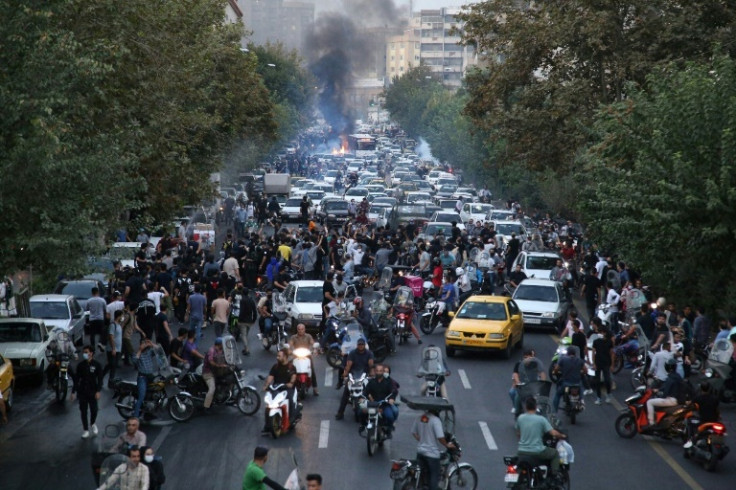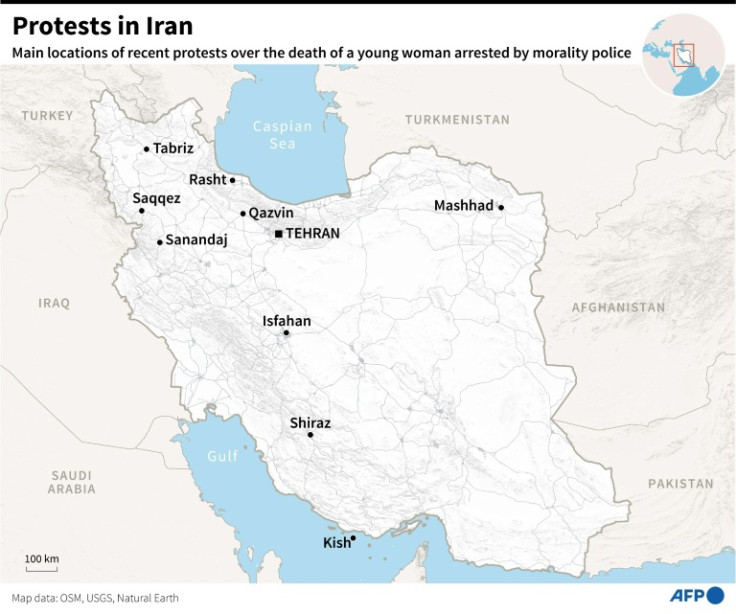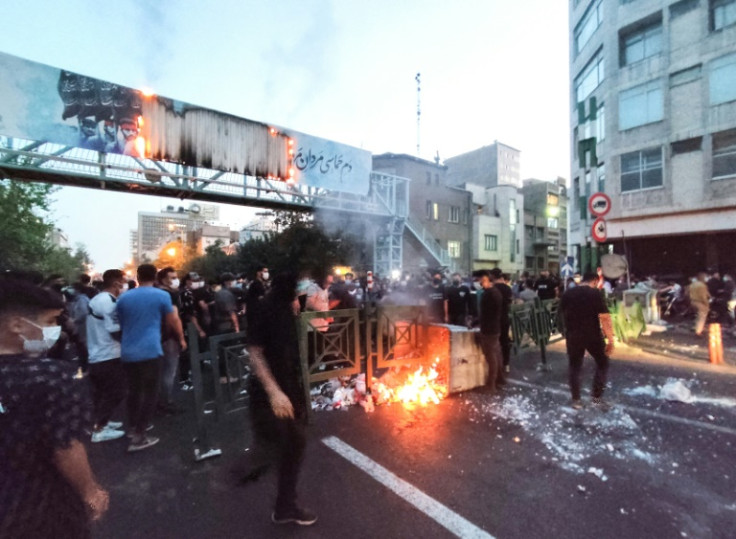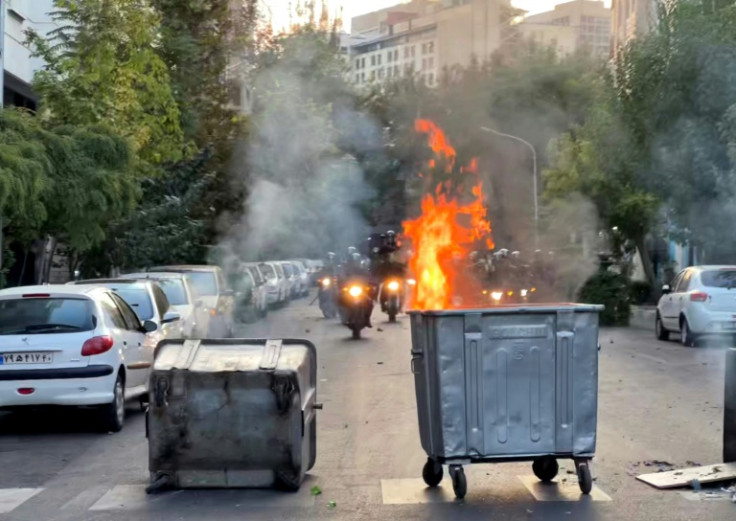Iran Braces For Counter Rallies As Protest Deaths Mount

Internet access remained severely restricted in Iran ahead of counter rallies on Friday, after a week of protests over the death in police custody of Kurdish woman Mahsa Amini that have left at least 17 dead.
Amini, 22, died after her arrest by the Islamic republic's feared morality police for allegedly wearing a hijab headscarf in an "improper" way, and news of her death sparked widespread outrage.
The official death toll rose to at least 17 on Thursday, including five security personnel, but the New York-based Center for Human Rights in Iran said its sources put the figure much higher.
"On the 7th day of #IranProtest, officials admit to at least 17 deaths w/ independent sources say 36," the CHRI said in a Twitter post.
"Expect the number to rise. World leaders must press Iranian officials to allow protest without lethal force."
Government-backed nationwide rallies in support of the hijab and a conservative dress code for women have been announced for Friday by Iran's Islamic Development Coordination Council, the official news agency IRNA reported.
Security forces fired "semi-heavy weapons" at demonstrators during overnight clashes in the northern city of Oshnaviyeh, said the Olso-based Kurdish rights group Hengaw.
In the nearby city of Babol, demonstrators were seen setting ablaze a large billboard bearing the image of Iran's supreme leader Ayatollah Ali Khamenei, according to videos shared online which could not be independently verified.
Since Amini was pronounced dead on September 16, three days after she was arrested in Tehran by Iran's morality police, protests have spread to most major urban centres of the country, including the capital, Isfahan, Mashhad, Rasht and Saqez.
Activists said the woman, whose Kurdish first name is Jhina, had suffered a fatal blow to the head, a claim denied by officials who have announced an investigation.
Unprecedented images have shown protesters defacing or burning images of Khamenei and late Revolutionary Guards commander Qasem Soleimani.
Some women demonstrators have defiantly taken off their hijabs and burned them in bonfires or symbolically cut their hair before cheering crowds, video footage spread virally on social media has shown.
In response, security forces have fired at crowds with birdshot and metal pellets, and deployed tear gas and water cannon, said Amnesty International and other human rights groups.
Demonstrators have hurled stones at them, set fire to police cars and chanted anti-government slogans, IRNA reported.
"The government has responded with live ammunition, pellet guns and tear gas, according to videos shared on social media that have also shown protesters bleeding profusely", CHRI said in a statement.
Internet access has been restricted in what web monitor NetBlocks on Thursday called a "curfew-style pattern of disruptions" amid the angry protests sparked by Amini's death.
Access to social media services Instagram and WhatsApp have been blocked since Wednesday night, and connections were still largely disrupted on Friday.
The measure was taken in response to "the actions carried out via these social networks by counter-revolutionaries against national security", Iran's Fars news agency said.
The council responsible for organising Friday's pro-hijab rallies called the protesters "mercenaries".
It has accused them of insulting the Koran and the Prophet Mohammed, as well as having burned down mosques and Iran's flag and "desecrated the women's hijab", IRNA reported.
Judiciary chief Gholam Hossein Mohseni-Ejei on Thursday called on the attorney general and the legal authorities to maintain peace and security and to confront "disruptive elements and professional rioters".
The intelligence services warned in a statement that "due to the exploitation of the situation by counter-revolutionary movements, any participation in illegal demonstrations will be punished by justice".
President Ebrahim Raisi, at a news conference in New York where he attended the UN General Assembly, said: "We must differentiate between demonstrators and vandalism".
The unrest comes at a particularly sensitive time for the leadership, as the Iranian economy remains mired in a crisis largely caused by sanctions over its nuclear programme.
Iran's powerful Islamic Revolutionary Guard Corps labelled the protests a "conspiracy of the enemy".



© Copyright AFP {{Year}}. All rights reserved.





















